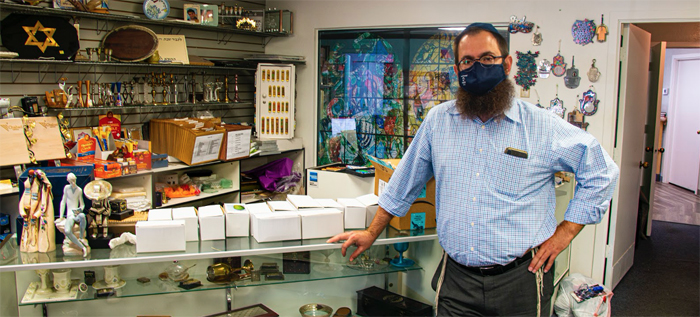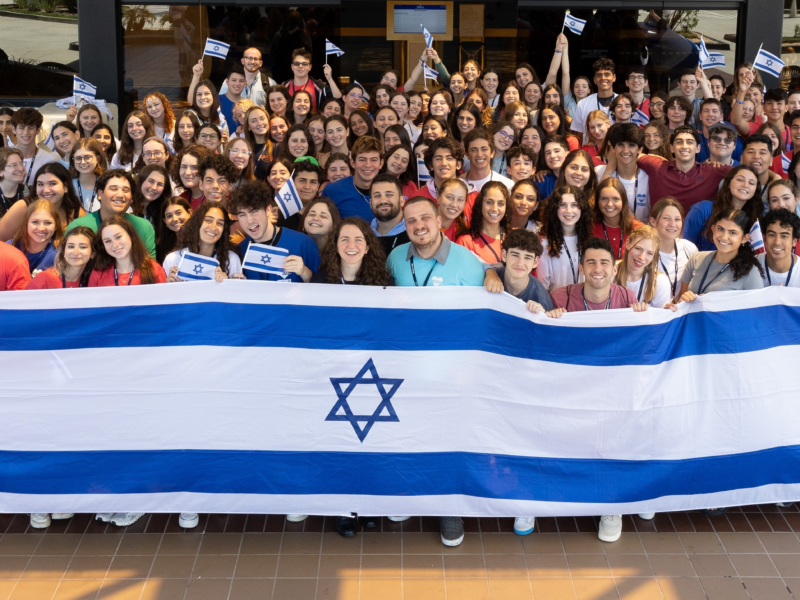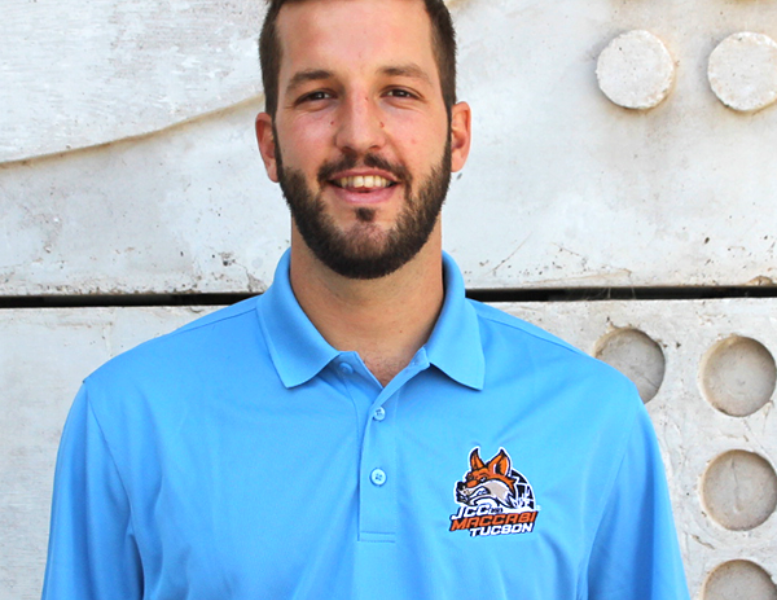Photo: Rabbi Mendy Levertov prepares the materials for Sukkot bags to be given out to those not comfortable attending in person. Photo by Elliott McVeigh.
By Elliott McVeigh
As we entered the synagogue at Chabad-Lubavitch in Phoenix, Orthodox Rabbi Mendy Levertov greeted another older rabbi by yelling across the room. In any other year, shouting to address your peers would be considered poor decorum. However, in the year of COVID-19, adaptations have occurred down the line to keep observers safe.
Some of the changes have been nothing more than a decrease in formality, like talking across a room. Other changes, though, require altering practices in a way that many might find sacrilegious. The integration of Zoom and the use of technology has presented a philosophical hurdle for many of the Conservative and Orthodox Jews. They would usually forgo electronics for the Shabbos and other holidays.
Just in the last few weeks, Jews worldwide have celebrated Rosh Hashanah and Yom Kippur, two of the most important holidays on the Jewish calendar. In the Valley, temples have found different ways to continue to celebrate with the community.
At Congregation Or Tzion, a Conservative synagogue with High Holiday ceremonies typically attended by 1,000 or more, the transition has come easily. Or Tzion Executive Director Nicky Spivak said that there has been minimal pushback to virtual synagogues.
“There are some people who would prefer to come together communally and pray,” he says. “But most people understand that the health and safety of our members come before anything else.”
With almost 400 active members, there have been few complaints about the shift online, Nicky says.
While many Conservative Jews have adjusted to the shift, Orthodox Jews have been steadfast to their principles. However, they have found ways to adapt without conceding to technology. Inside the synagogue at Chabad, Rabbi Levertov expounded on the morality of adaptation. Levertov, trained in the art of the sermon, couldn’t help but explain his thinking anecdotally.
buy aygestin online
He tells the story of a young boy in England who is confused as to why Big Ben is so much higher than everything else. The dad tells the boy that, if Big Ben were at the same level as everything else, people would try to adjust it to the time on their wristwatches. Because Big Ben is so much higher, you have to make sure you adjust your wristwatch to its time instead.
“I use that as a parable for the Torah,” he says. “Things might change in the circumstances, but if you truly believe that God is infinite, that means you can’t really change anything. The decisions God made in the Torah still hold up today. So, you just have to adapt your own life, but keep it in the framework of the Torah.”
The rabbi says that, with a strong foundation, you can adapt your practices to your capabilities. That attitude has resulted in some creative solutions, such as giving a “Shabbos in a bag,” which included everything needed to do a personal Shabbat service at home, to whoever wanted one.
“Instead of watching a movie, we give them the tools to be part of that movie,” he says.
The attitude toward evolving Jewish traditions is in itself evolving nationally, according to Levertov. Overseas though, a more stringent mentality and different handling of the pandemic by the government has caused Israelis to approach the issue of technology in an entirely different way.
Raizy Horowitz, an Orthodox Jew from Brooklyn, now lives in Israel, where they are currently on round two of quarantine. Much like Orthodox Jews in the States, people under quarantine in Israel have still managed to avoid using technology to continue their practices. This has had a profound effect on the Orthodox community, he says.
“Praying in a synagogue is not just for praying,” he says. “It’s also a place where you meet your friends and discuss different topics about Judaism. So, the social Judaism life has been affected, which has been really, really difficult.”
buy bactroban online
While public synagogues have mostly been shut down, many people have had to find or create their places of prayer. Despite the negatives, Horowitz has also seen growth in the community and himself. He chooses to see the pandemic as a period for introspection.
“Shabbos was the most enjoyable day of the week for me,” he says. “When pandemics happen, you always keep up with the news. Being given the opportunity to disconnect from the world and disconnect from every single person’s fear and just being able to focus on your family and God, I think, was the savior for me.”
Just as adherence to Jewish principles varies from person to person, so does the way Jews have allowed their beliefs to evolve to practice during the pandemic. Even in the most traditional U.S. temples, concessions have been made to involve the community. Even though similar tactics have not translated overseas, the general lessons they are learning are universal.
According to Rabbi Levertov, the most important question is,“Are you going to take the 20 minutes to not rely on a cantor to lead your prayers, but actually find it within you?”
buy benicar online
On the other side of the earth, Raizy Horowitz says he wonders the same thing.
“Until now, you’ve been spoiled; you went to synagogue,” Horowitz says. “ What does synagogue mean to you? What does it mean to pray with other people? What does it mean to pray by yourself? What is your connection with God?”
Elliot McVeigh is currently working on his master’s in journalism and mass communications at Arizona State University.






